Whorlton Bridge background and history
The history and background to the bridge's closure.
Background
In 2019, due to a report of damage to the bridge, an inspection forced us to close it to all vehicles as we had to carry out further investigation into the cause.
Since closing the bridge, a diversion has been in place and we have employed specialist independent engineers to carry out a detailed inspection to find out the current condition of the bridge.
Unfortunately, having completed the assessments, we have closed the bridge from Saturday 5 December 2020 to all users due to public safety. We appreciate that it provides a route across the river for local residents and people visiting the area, but it is unsafe to use and public safety is our priority. We would like to thank local residents for their patience.
History
An 1829 act of parliament granted permission for the building of Whorlton Bridge as part of the Staindrop to Greta Bridge turnpike. Unfortunately, the initial structure was washed away in flooding, so construction started again in 1830 of the single span chain bridge suspension bridge.
The bridge was formally opened 7 July 1831 and was originally designed to carry horse and carts with coal from the Durham coal fields to the south. In 1914 the structure was assessed and it was recommended that a 3 ton weight limit be imposed on the bridge which has remained in place to date.
In December 1942, prime minister Winston Churchill stood on Whorlton Bridge to watch soldiers train in the meadows on the south bank, wade through the river Tees and then tackle the steep Durham cliffs.
It is a Grade 2* listed structure and a scheduled monument. It is one of the UK's oldest road suspension bridges with the deck totally supported by its original iron chains. It is also one of the UK's earliest surviving examples of an iron chained suspension bridge with twin battered masonry pylons at each end.


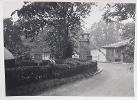
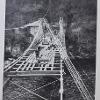
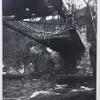
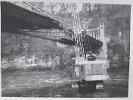
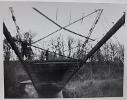

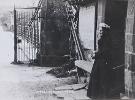


 Share this page on Facebook
Share this page on Facebook
 Share this page on Twitter
Share this page on Twitter
 Print this page
Print this page





